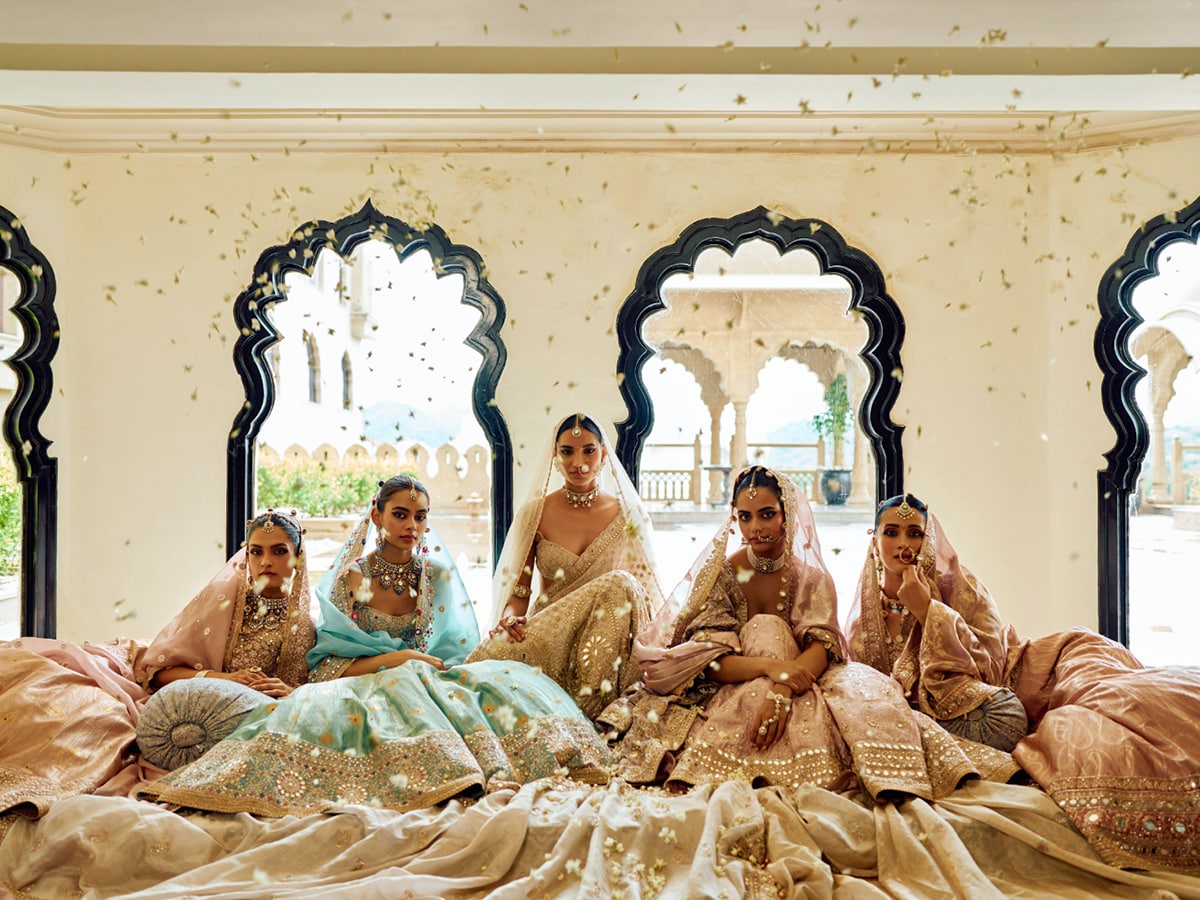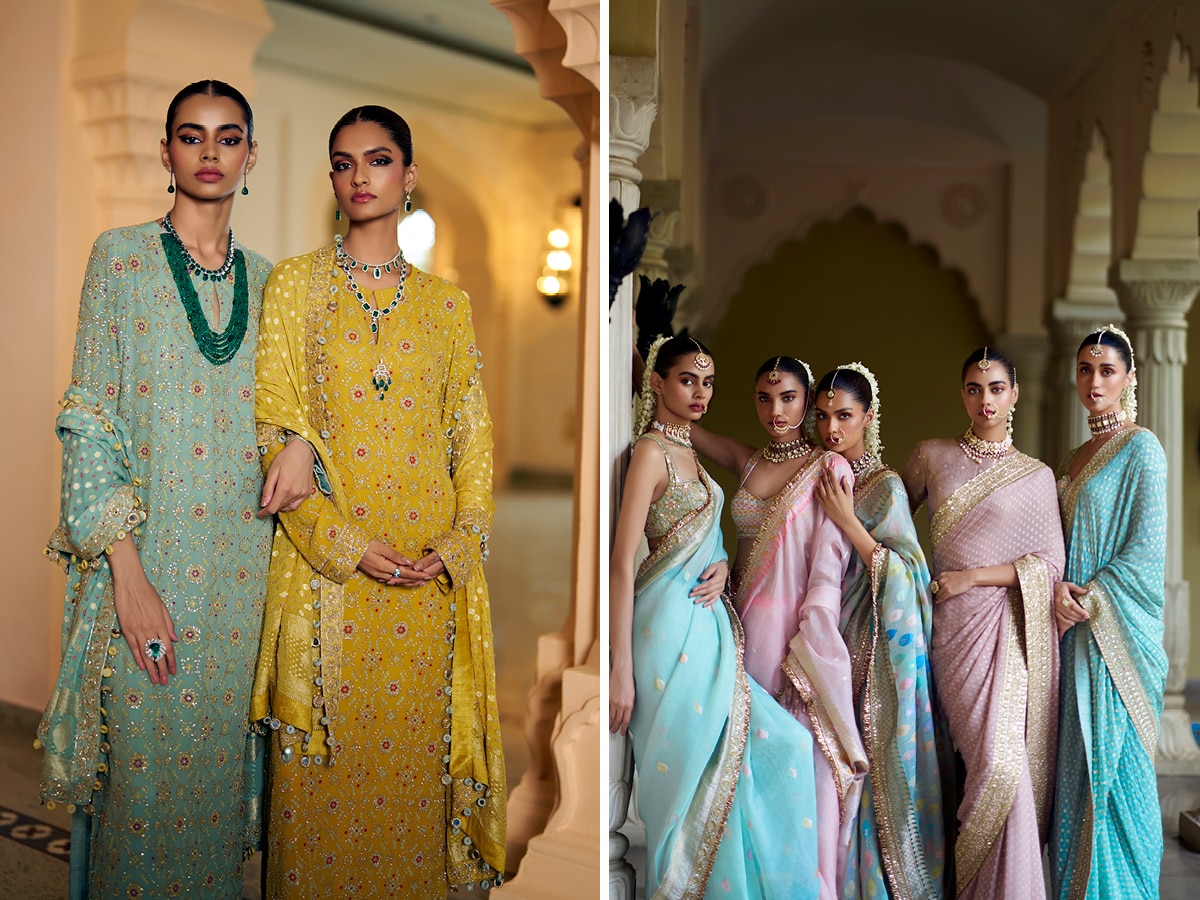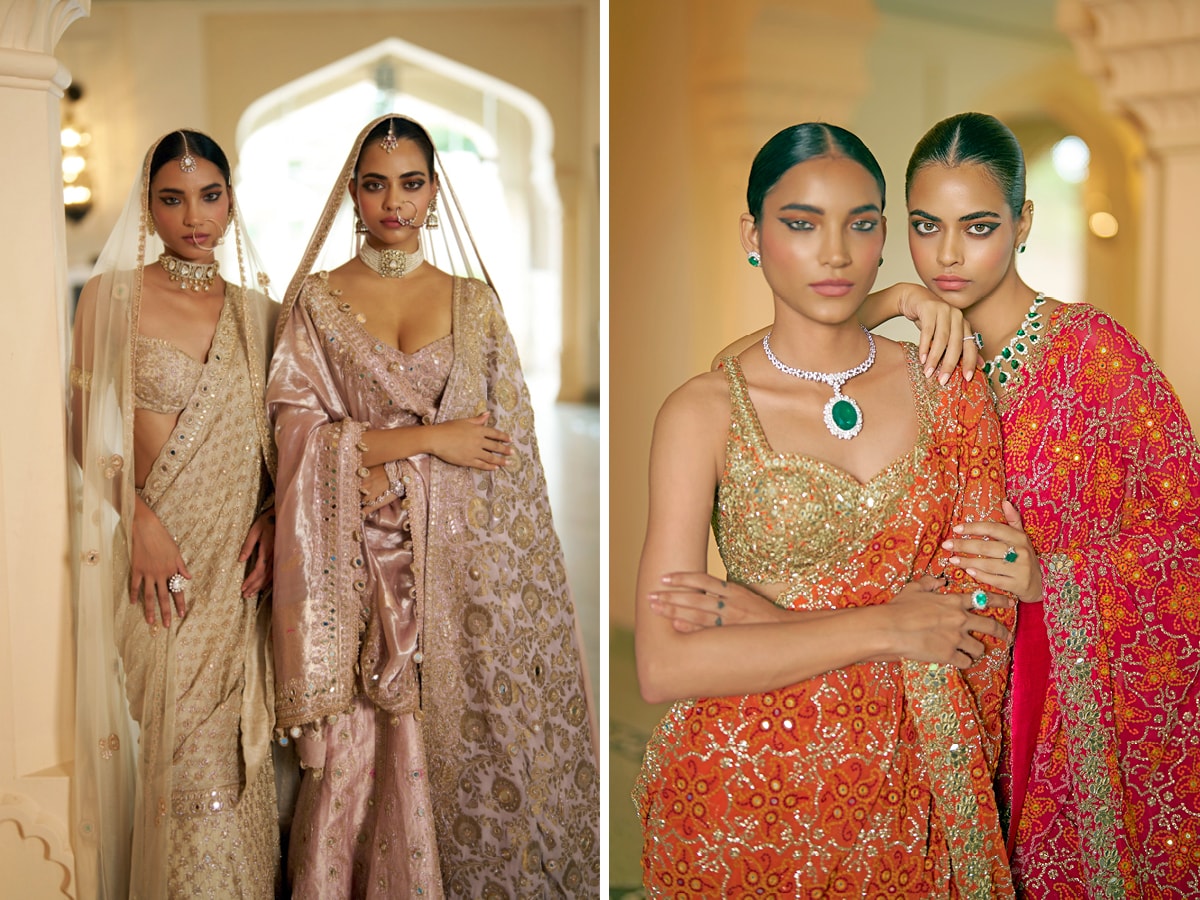In a conversation with Forbes India, Arpita Mehta, 39, creative director and founder, Arpita Mehta, shares insights about how the collection is rooted in India’s heritage while offering brides something fresh and adaptable. Edited excerpts:
Nazara was born out of my desire to merge different aspects of Indian craftsmanship and heritage with a fresh, multidimensional approach. As a brand, every season, we strive to introduce new dimensions to our artistry and collections. Nazara brings together those fragments of ideas we’ve dabbled with in the past but haven’t fully immersed ourselves in until now. This collection allowed us to dive deeper into our favourite traditional textiles and present them in our signature style. Through Nazara, we wanted to showcase these intricate textiles—like bandhani and Banarasi —in their full glory, yet crafted in a way that resonates with the modern bride.
I’ve always had a soft spot for India’s rich textile traditions, especially bandhani from Gujarat and Banarasi from Lucknow. These crafts represent the beauty of different regions, and I wanted to bring them together to tell a unique story. By highlighting both, we’re celebrating the diversity and depth of Indian artistry. With Nazara, we used these techniques in a more focused way to bring out their intrinsic beauty. Bandhani, with its vibrant colours and intricate details, and Banarasi’s rich, metallic threads bring an opulent texture that’s perfect for bridal wear. The combination adds a new flavour to our collection, merging distinct cultural elements for a cohesive yet varied aesthetic.
Q. What was your primary goal in blending India’s cultural heritage with modern bridal elegance? Can you walk us through the process of creating some of the pieces?
My goal was to celebrate the craft and elegance rooted in India’s heritage while offering brides something fresh and adaptable. For instance, bandhani’s intricate pattern allows us to create pieces with bold colour and texture. We used it where it would make the most impact, highlighting its vibrant hues and delicate craftsmanship. Similarly, Banarasi fabric adds a regal, metallic sheen, perfect for lehengas that exude elegance. The creation process involved a lot of collaboration with artisans, blending their traditional expertise with a modern design approach to make each piece unique yet grounded in heritage.
 Nazara encompasses tradition, modernity, and diversity. Image credit: House of Pixels
Nazara encompasses tradition, modernity, and diversity. Image credit: House of Pixels
Q. Which traditional embroidery techniques were most significant in the making of Nazara, and why did you choose to highlight them?
Mirror work is very close to my heart, especially for its connection to Gujarat. In Nazara, we took it a step further by introducing patterns inspired by bandhani. This created an embroidered effect that mimics the bandhani aesthetic, making the pieces look even richer and fuller. It’s about respecting tradition while experimenting with how it’s presented. The result is a collection that feels both rooted and novel, with each piece offering something distinct.
Also read: Rohit Bal was ‘wildly Indian, a showman, the first to take menswear seriously’
Q. Nazara features classic lehengas, ruffle saris, and embroidered capes. How important is versatility in modern bridal couture?
Versatility is absolutely essential today. Brides are looking for pieces that reflect their personality and allow them to express themselves freely. India is such a diverse country, and our audience is now global, with brides who want to mix tradition with individuality. In Nazara, we’ve incorporated versatile silhouettes like lehengas, capes, and rufle saris, which can be styled in multiple ways. The more options we create, the more we’re able to find a space in their hearts and wardrobes. It’s about offering them timeless, personal choices that they can cherish and repurpose.
 Nazara features versatile silhouettes like lehengas, capes, and rufle saris, which can be styled in multiple ways. Image credit: House of Pixels
Nazara features versatile silhouettes like lehengas, capes, and rufle saris, which can be styled in multiple ways. Image credit: House of Pixels
Q. What do you think brides are looking for today that Nazara fulfils?
I feel Nazara encompasses tradition, modernity, diversity and freedom to be who you want to be.
Also read: India’s green fashion lovers switch to secondhand
Q. How have you adapted your business model to stay competitive in the luxury bridal fashion industry?
For me, it all begins with the product. It’s the hero of everything we do. We’re always innovating and refining our designs, focusing on quality and craftsmanship. In this industry, staying true to one’s artistic vision while embracing change is key, and that’s what we’re doing with every collection.
Q. What is next for the fashion house of Arpita Mehta?
We’re really excited about our upcoming store in Goa, at Siolim, which is a true passion project. It’s more than a boutique—it’s a holiday destination where we’ll be showcasing our resort and prêt collections, along with a capsule home line. It’s all about creating an experience that reflects our brand’s ethos, merging fashion with lifestyle in a beautiful, relaxed setting.
 Nazara merges different aspects of Indian craftsmanship and heritage with a fresh, multidimensional approach. Image credit: House of Pixels
Nazara merges different aspects of Indian craftsmanship and heritage with a fresh, multidimensional approach. Image credit: House of Pixels

